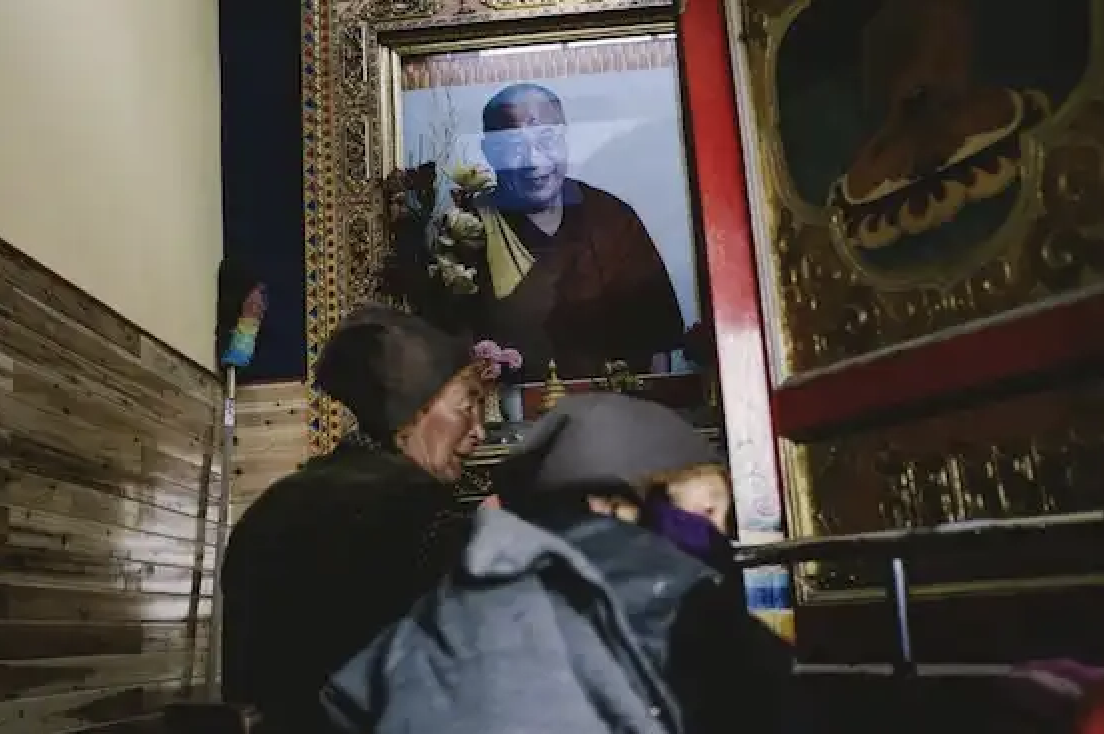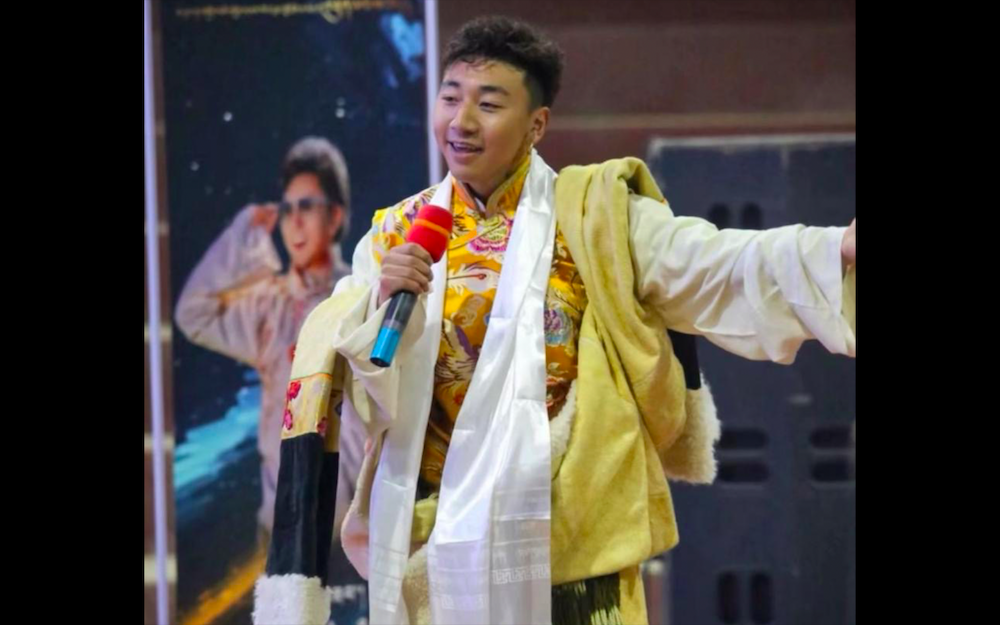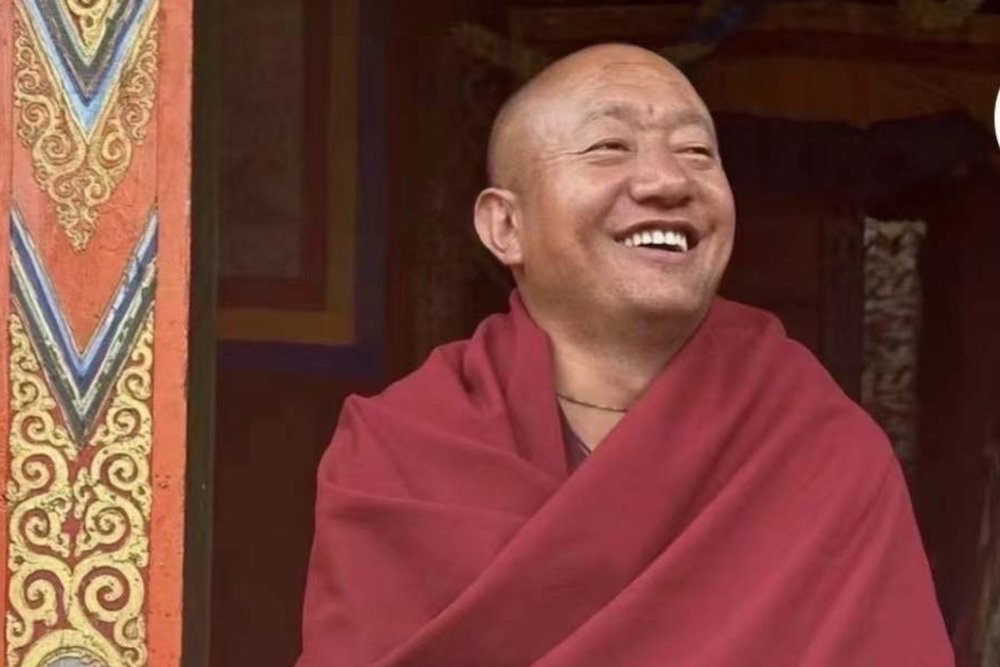Monks to bring their unique harmonies to Tallahassee
By Kathleen Laufenberg
They’re back – and they’re ready to chant.
The Tibetan monks from the Drepung Gomang Monastery, who visited here in 2001 and 2002, will return Jan. 15 for a six-day stay. They’ll conduct a Lake Ella blessing; talk about their Buddhist beliefs and practices; and present a cultural pageant at the Unitarian Universalist Church.
“Their culture has existed for more than a thousand years, and this is a way of helping that culture remain vibrant,” said Kaity Power, one of the Tallahasseeans responsible for bringing the monks here during their 2003-2004 North American Tour. The 10 monks and their interpreter will camp out at Power’s Killearn home.
Tibetan Buddhist monasteries in India have been sending groups of monks to the United States since 1999, hoping to accomplish two goals: to raise money to support their monastery and its work, and to share their culture and message of inner peace and compassion.
The monks’ main Tallahassee performance – the cultural pageant – will feature harmonic overtone chanting of traditional prayers. Each monk will sing three notes simultaneously. Wearing traditional, brightly colored costumes they’ve made themselves, the monks also will play horns, flutes, bells and drums and perform Tibetan dances.
At the Lake Ella blessing, the monks will offer prayers (called “pujas”) or a combination of blessings, usually recited by chanting. The prayers are often accompanied by delicate hand gestures, drums, horns and flutes.
At their performances, donations are always requested.
“I feel like it’s a worthy cause,” said Douglas Whitehouse, who, with wife Margaret Lamar, was also instrumental in bringing the monks back to town. “At their monastery, they take in refugees who have nothing but the clothes on their backs.”
The monks understand what it means to be a refugee, for they’re refugees themselves. After communist China completed its invasion of Tibet in 1959, the 14th Dalai Lama and about 100 monks fled to India. In 1969, the Indian government donated 42 acres to the monks, who established a new, in-exile Drepung Gomang Monastery on the plains of South India. Today, nearly 1,500 monks study there. Each year, the monastery takes in about 150 people who show up on its doorstep in need of help.
Organizers of the North American tour (www.gomangtour.org) say money raised by the monks is used to house, feed and educate anyone wishing to study at the monastery. The monks hope to establish a Food Foundation Fund to help provide a continuous supply of nourishment.
The monks are not, however, gourmet noshers. When they stayed at Power’s home during one of their previous visits, they ate much the same hearty meal for breakfast, lunch and dinner: a stew of noodles, chopped vegetables and meat. They make their noodles from scratch, she added.
The monks enjoy a limited range of beverages – primarily water and “butter tea.”
“It’s black tea to which they add butter and salt,” Power said.
It’s definitely an acquired taste, she and Whitehouse agreed.
The monks range in age from early 20s to mid-40s and typically rise between 5 and 6 a.m. The two or three assigned to that day’s breakfast duty prepare the butter tea and meal. The others chant.
“They’re wonderful guests,” Power said. “They do all their own cooking and cleanup. They make sure the floor is vacuumed and swept. They do all the dishes. It’s not like having 10 or 11 people in my house. It’s almost like there’s only one person there. They never disturb anything.”
The monks also like being together.
“It keeps the energy cohesive,” said Power, a physical therapist at Archbold Medical Center in Thomasville.
They do split up for grocery shopping, though. Two or three head to the store along with their translator, who also drives the monks wherever they need to go in the van they rent for their American road trip.
During their spare time, the monks read or copy text they’re studying. They don’t, as a rule, watch television – although Whitehouse, 50, noted that he caught them watching Barney (the purple dinosaur on public television) with some curiosity during a stay at his home in Jefferson County.
“The monks really like being around children,” he said. “I think they feel that children are pure beings.”
Power said she and her 14-year-old daughter are looking forward to playing host again this year.
“They really change the vibrations in my home,” she said.
Contact Reporter Kathleen Laufenberg at (850) 599-2375 or klaufenberg@tallahassee.com









